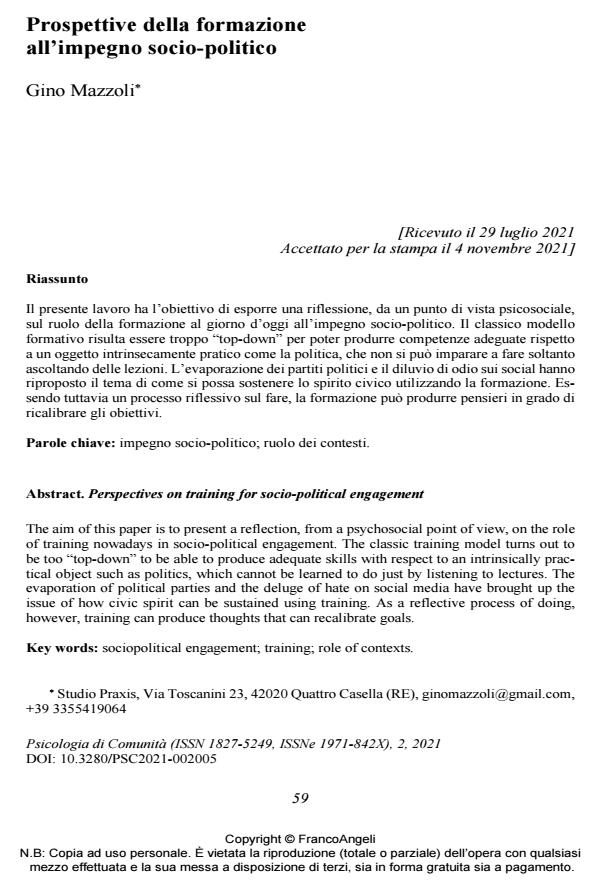Perspectives on training for socio-political engagement
Journal title PSICOLOGIA DI COMUNITA’
Author/s Gino Mazzoli
Publishing Year 2021 Issue 2021/2
Language Italian Pages 17 P. 59-75 File size 207 KB
DOI 10.3280/PSC2021-002005
DOI is like a bar code for intellectual property: to have more infomation
click here
Below, you can see the article first page
If you want to buy this article in PDF format, you can do it, following the instructions to buy download credits

FrancoAngeli is member of Publishers International Linking Association, Inc (PILA), a not-for-profit association which run the CrossRef service enabling links to and from online scholarly content.
The aim of this paper is to present a reflection, from a psychosocial point of view, on the role of training nowadays in socio-political engagement. The classic training model turns out to be too "top-down" to be able to produce adequate skills with respect to an intrinsically practical object such as politics, which cannot be learned to do just by listening to lectures. The evaporation of political parties and the deluge of hate on social media have brought up the issue of how civic spirit can be sustained using training. As a reflective process of doing, however, training can produce thoughts that can recalibrate goals.
Keywords: sociopolitical engagement; training; role of contexts
Gino Mazzoli, Prospettive della formazione all’impegno socio-politico in "PSICOLOGIA DI COMUNITA’" 2/2021, pp 59-75, DOI: 10.3280/PSC2021-002005